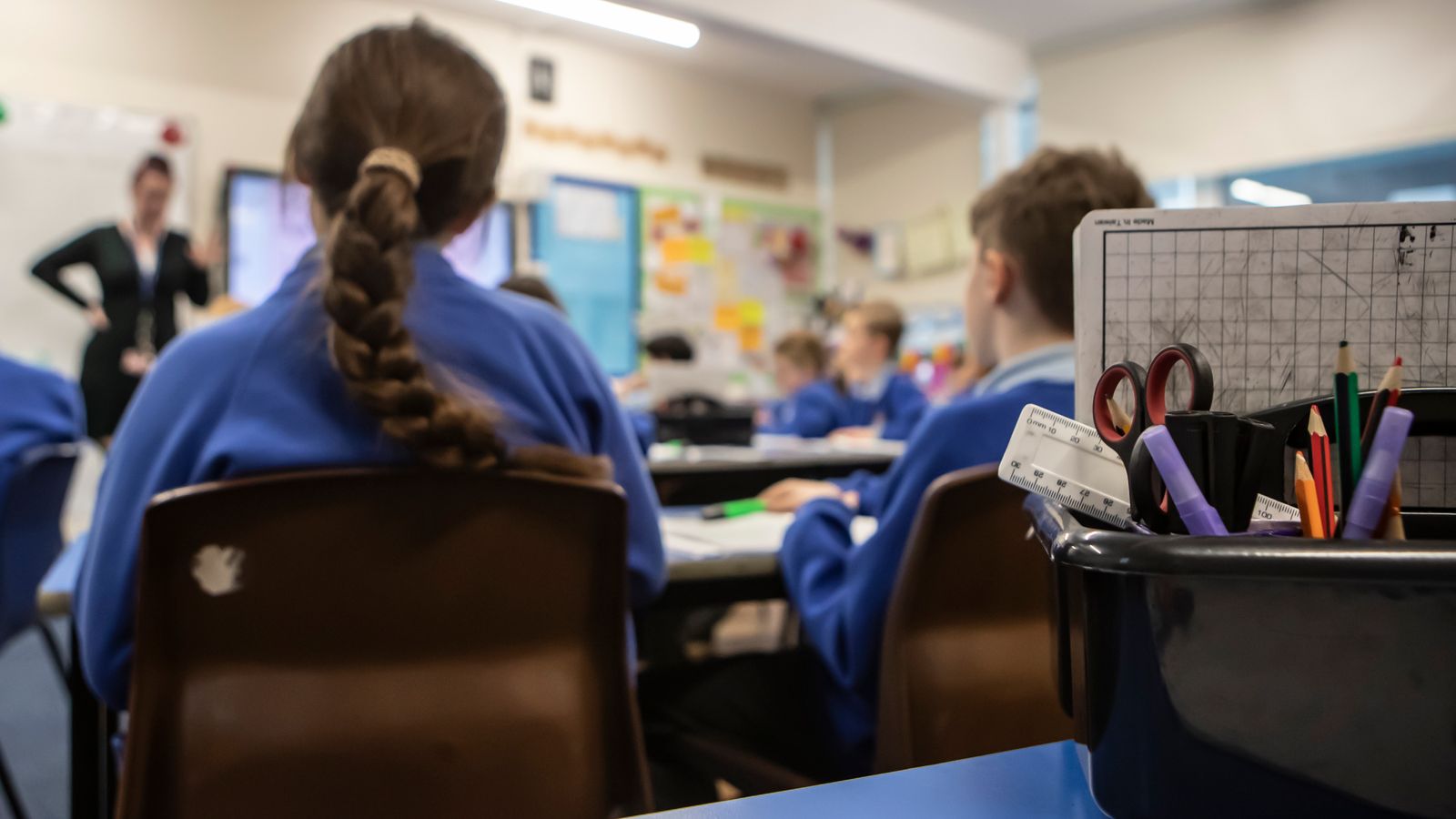Nadhim Zahawi has told MPs he is “going to look at” lengthening the school day.
Speaking in the Commons during education questions, the newly appointed education secretary said there are some “excellent examples” of schools which have implemented longer teaching hours and urged all institutions to ensure they are operating for the average school day length of 6.5 hours.
His comments came as Conservative MP and chairman of the Commons Education Select Committee Robert Halfon called on Mr Zahawi to continue to make the case for lengthening the school day.
“We know from the Education Policy Institute that it increases educational attainment from two to three months, especially amongst disadvantaged pupils. We know that a longer school day, according to the department for culture, media, sports, increases numeracy by 29%. So, this increases educational attainment,” Mr Halfon said.
“Will he at least consider some pilot schemes in disadvantaged areas around the country where we can have a longer school day?”
Mr Zahawi replied: “I think the priority has to be for those children and students, who have the least time available to them to recover, which is why the £800 million for the 16 to 19-year-olds additional 40 hours of education is so important. Plus the £1 billion going into secondary and primary, making the total £5 billion of recovery money.
“There are some excellent examples… of a longer school day which I’m going to look at. The average school day now is 6.5 hours and I would like to see everybody move towards that average.”
Disneyland Shanghai shut down as thousands ‘locked in’ for mass coronavirus testing after one positive case
COVID death risk 32 times higher for the unvaccinated, figures suggest
COVID-19: Five million people have now died from coronavirus across the globe
But one leading education union warned that lengthening the school day should be “weighed against” factors including pupils’ mental health.
Paul Whiteman, general secretary of school leaders’ union NAHT, said in a statement: “The gains that might be possible through extending the school day must be weighed against the costs of such a strategy, including the impact on pupils’ mental health, reduced family time and less time for extra-curricular activities.
“Children’s happiness and wellbeing should be prioritised as well as their education.”
Back in June, then education secretary Gavin Williamson said there was “a debate to be had” over extending the school day for children to be able to catch up following reduced face-to-face teaching time during the coronavirus pandemic.
Mr Williamson questioned whether some pupils should be exiting their school gates before 3pm and whether the midday lunch break had been “condensed” too far.
He suggested lengthening school hours would allow for extra learning time and longer lunch breaks.
But responding to Mr Williamson’s comments, shadow education secretary Kate Green warned that while she agrees that schools should be given more funding to extend their learning provisions, “children won’t learn well if they are tired and if it has been a long day”.
Back In June, ministers announced post-COVID catch-up plans worth £1.4bn for school pupils in England, with the extra funding to be spent on tutoring sessions to make up for learning time lost during the pandemic.
In last month’s Budget, Chancellor Rishi Sunak pledged an extra £2bn for education recovery from COVID, bringing spending on COVID catch-up since 2019 to nearly £5bn.
But critics pointed out – even with the extra cash – how the sum is still less than a third of the £15bn asked for by the government’s former education catch-up tsar, Sir Kevan Collins.
Mr Sunak also announced that funding per pupil in England’s schools will be restored to 2010 levels over the next three years.
It means an extra £4.7bn for schools in England by 2024-2025 and a cash increase for every child of £1,500, the chancellor said.
However, it will not cover the 9% fall in funding since 2009 – the biggest cut in 40 years.






















